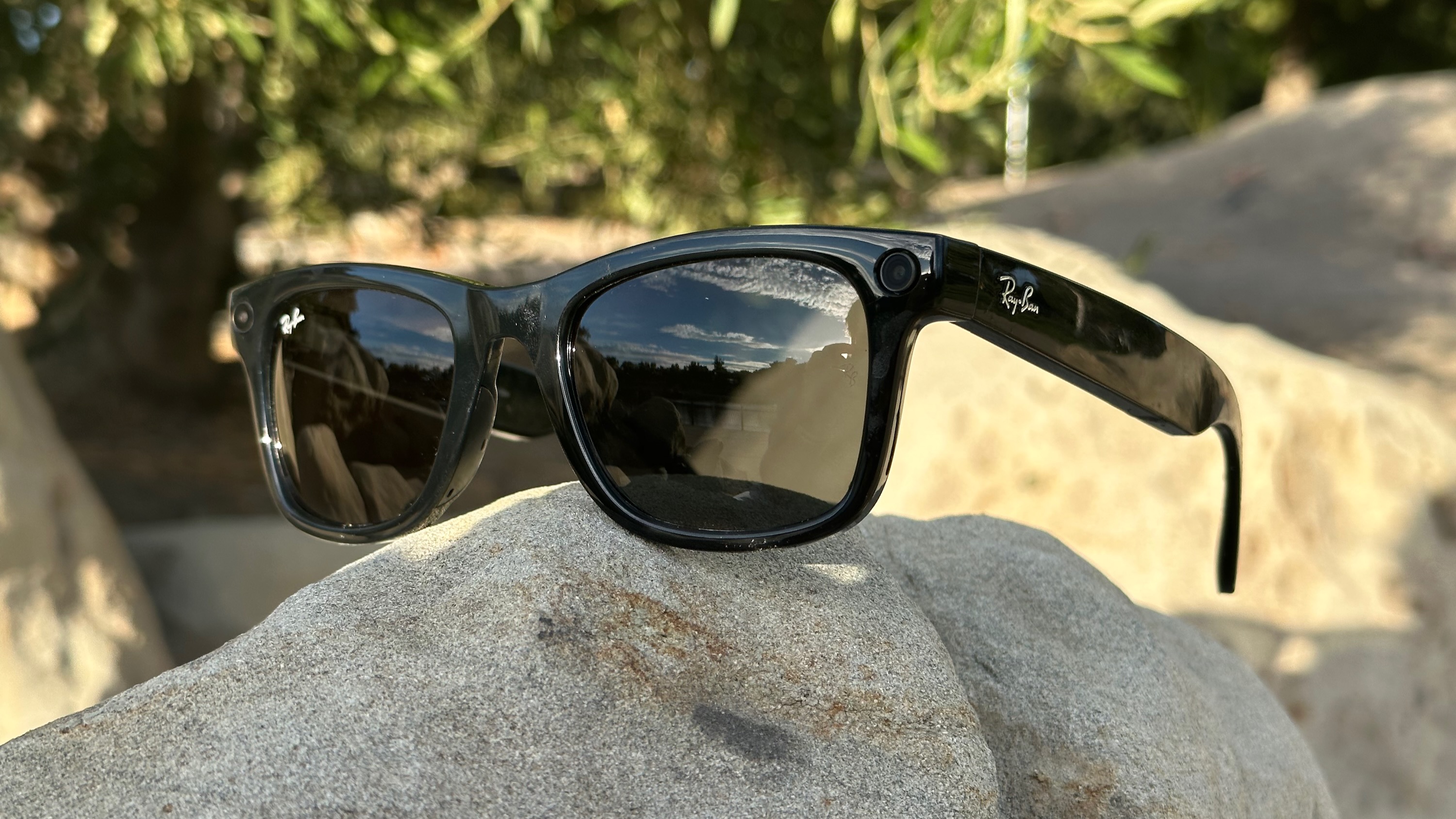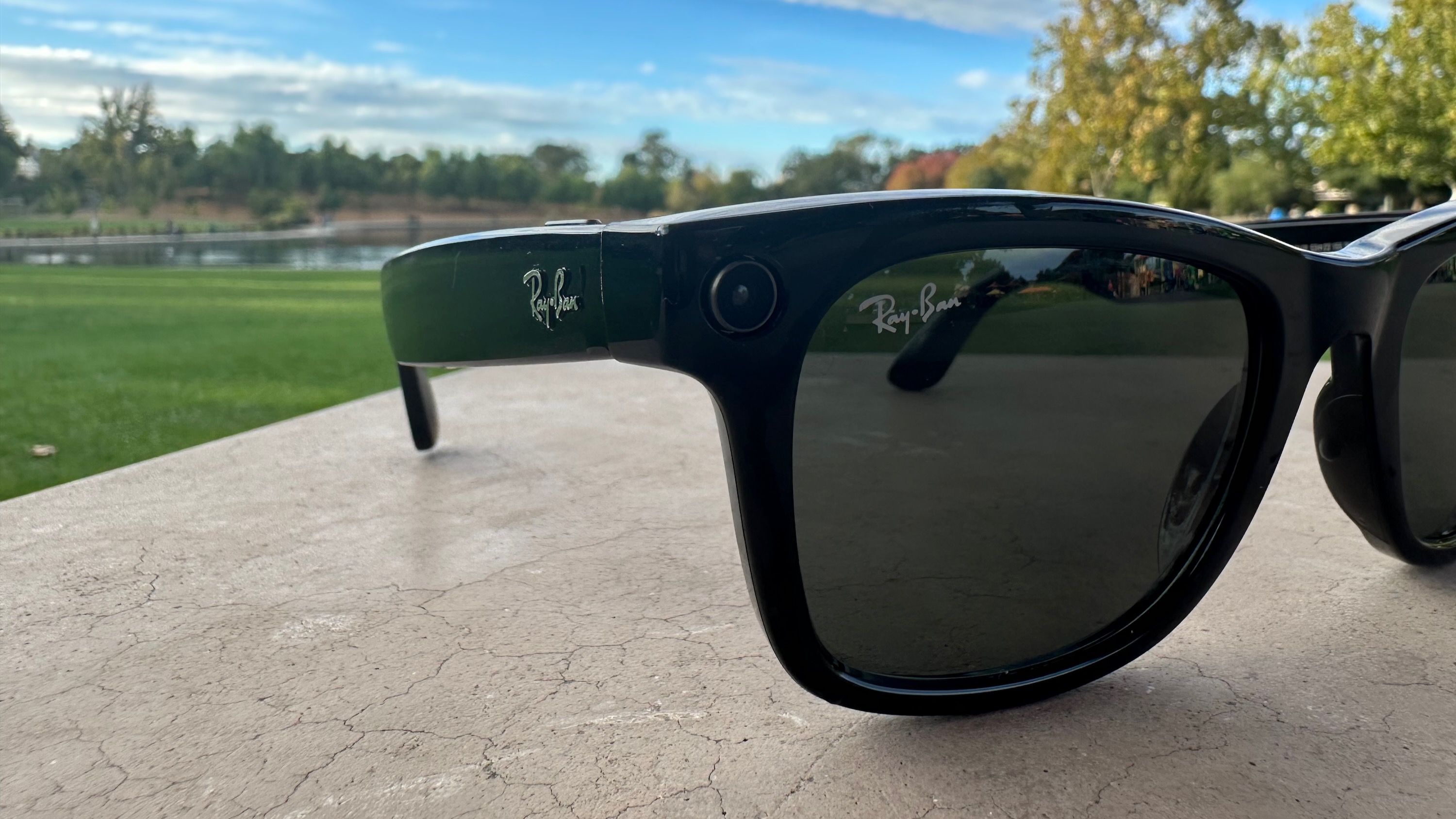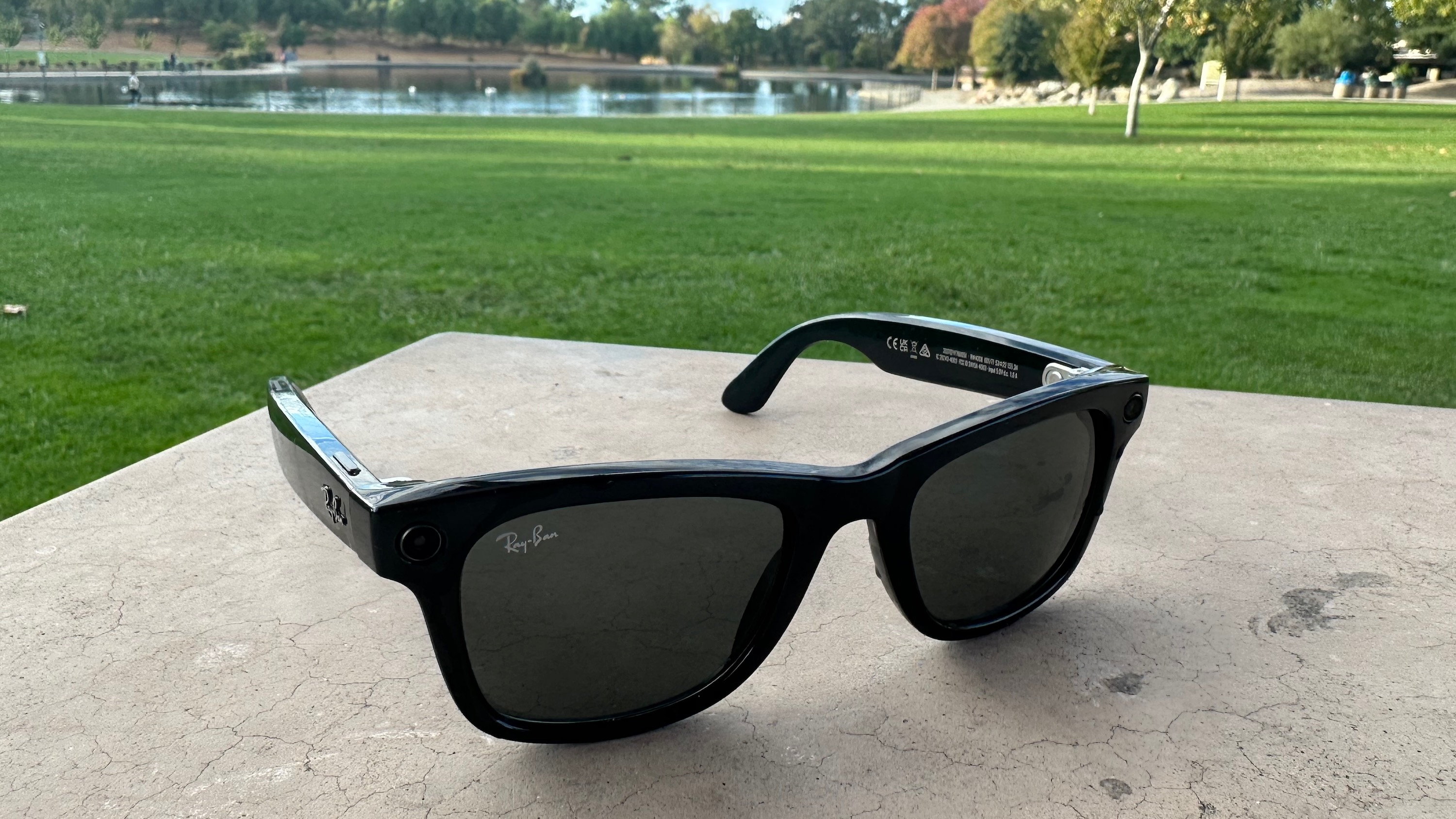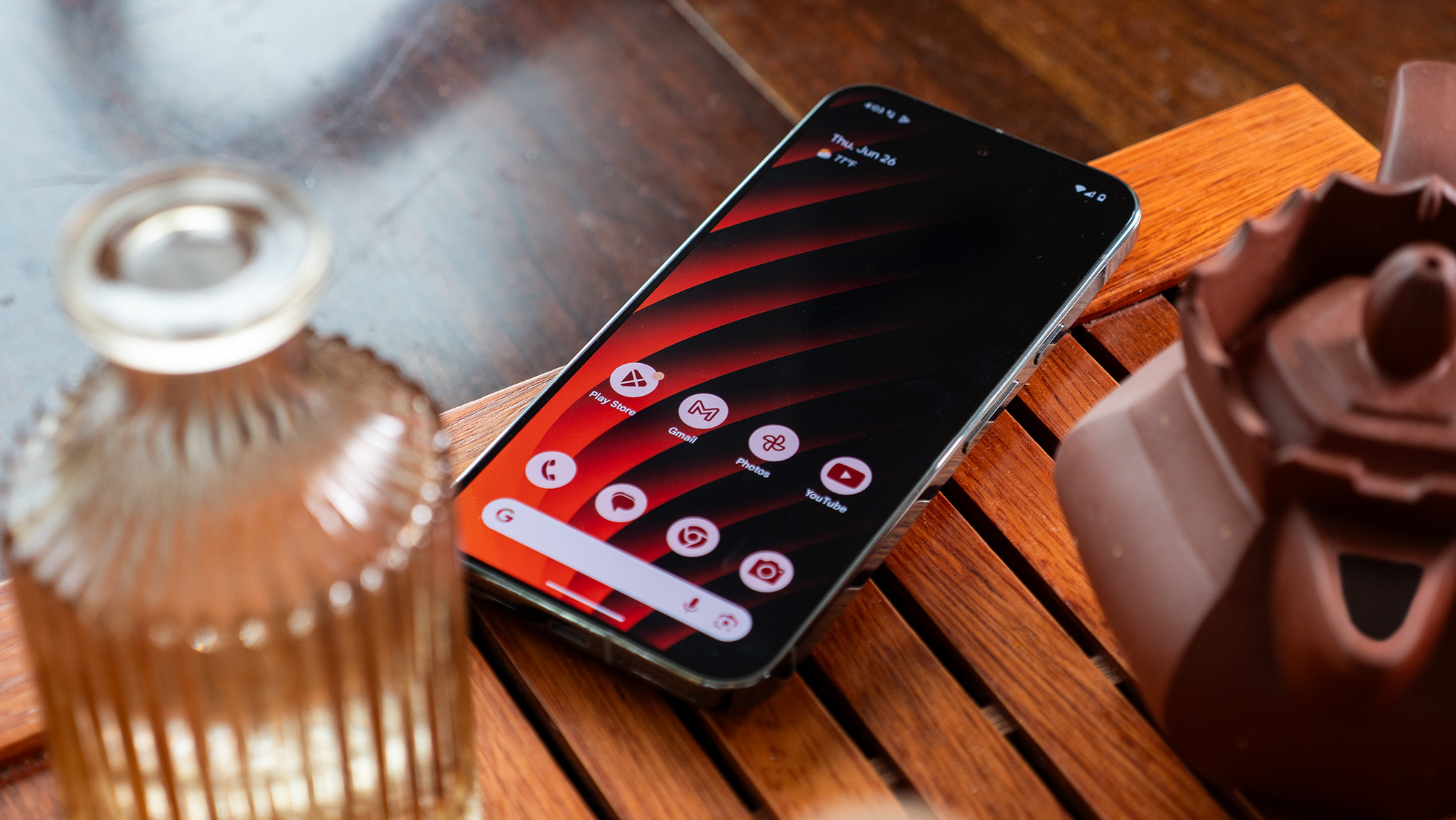Meta just locked up its smart eyewear dominance with long-term EssilorLuxottica deal
The Ray-Ban Meta are already the best smart glasses yet, and this new partnership will help Meta for years to come.

What you need to know
- Earlier this summer, reports indicated that Google could be vying for Meta’s partnership with EssilorLuxottica.
- Now, EssilorLuxottica announced that it has reached a long-term deal with Meta to partner and collaborate ”into the next decade.”
- EssilorLuxottica owns the Ray-Ban brand, which helped make the Ray-Ban Meta smart glasses that are incredibly successful.
Meta’s collaboration with EssilorLuxottica led to the creation of Ray-Ban Meta smart glasses, which are the abundantly-successful successor to the original Ray-Ban Stories. Now, that partnership will continue ”into the next decade,” the storied eyewear brand announced in a press release Tuesday, Sept. 17.
The news comes after Google reportedly tried, and subsequently failed, to strike a deal of its own with EssilorLuxottica.
Following the positive reception to Ray-Ban Meta glasses, which have gotten better over time thanks to over-the-air software updates, Meta and EssilorLuxottica want to team up for the foreseeable future. EssilorLuxottica is a massive Italian-French multinational corporation with many recognizable brands under its umbrella, including Ray-Ban. The company says Ray-Ban Meta glasses are “in high demand in the markets they’re available in,” which has been evidenced by low stock online and in Lens Crafters retail stores.
“I'm proud of the work we've done with EssilorLuxottica so far, and I'm excited about our long term roadmap ahead,” said Mark Zuckerberg, the founder and CEO of Meta, in a statement. “We have the opportunity to turn glasses into the next major technology platform, and make it fashionable in the process."
Although the Ray-Ban Meta smart glasses are Meta’s only current smart eyewear product, there appear to be many more in the pipeline. Zuckerberg teased the existence of new AR smart glasses earlier this year, and we may learn more about them soon. There’s also the Meta Quest family of VR/AR headsets, which could eventually be scaled down to the glasses form factor in the future.

We always make a point to never buy something expecting it to get better over time with future software updates, and simply be surprised if it does. Well, that’s exactly what Meta did with the Ray-Ban Meta smart glasses. They first shipped with a camera, speakers, and relatively basic voice assistant functionality. In April 2024, they received an update with Meta AI and video calling support.
Through all the hype around the Humane AI Pin and the Rabbit R1 — and even Google’s Project Astra and OpenAI’s ChatGPT 4o — it was Meta who delivered a consumer-friendly way to tap into multimodal AI without breaking the bank. Your glasses saw what you could see, and was able to tell you more about it. There is no wildly-overpriced dedicated AI hardware required. Delivering multimodal AI to a person’s face with Ray-Ban Meta smart glasses is arguably one of Meta’s biggest achievements in the wearable space.
Get the latest news from Android Central, your trusted companion in the world of Android
What I learned wearing the Ray-Ban Meta smart glasses for nearly a year

At the end of the day, what matters is that the Ray-Ban Metas are the first pair of smart glasses that really sold. We know what EssilorLuxottica vaguely said about sales, but anecdotal evidence supports that point as well. After nearly a year of wearing Ray-Ban Meta glasses as my daily drivers, as well as competitors like the Solos AirGo 3 and the TCL RayNeoAir 2, the Ray-Ban Metas are the only one that is regularly recognized in the wild.
I’m not talking about by people in tech circles, either. I wore the Solos AirGo 3 for a few hours at Google I/O and it took my Android Central colleagues a fair bit of time to figure out that they were smart glasses. By comparison, I’ll go to a coffee shop in Arizona and get questions like “are those the Ray-Ban smart glasses with cameras?” It’s the small details like those that show when a product has reached mainstream appeal, and that is a significant hurdle for many emerging products. Meta and EssilorLuxottica crossed it, and that’s why I’m not surprised they’re gearing up for a happy future.
As a glasses-wearer that needs prescription spectacles nearly 24/7 to navigate the world, I’ve had an interesting time wearing the Ray-Ban Metas. They’re not that comfortable, battery life is mediocre, and everyone can hear what you’re playing through the speakers. Then I remember that a pair of smart glasses stylish enough to pass as regular glasses can take photos like this one, straight from my face.

That’s enough for me, and many others. If you would’ve told me I could take a photo with my glasses of that quality five or 10 years ago, I would’ve laughed or scoffed.
In some ways, the fact that the Ray-Ban Meta glasses are so good and have so much room for improvement is exciting. I already know what I want to see in a Ray-Ban Meta 2, and I’d probably buy a new pair if Meta and EssilorLuxottica fixed a few of my gripes. Durability is a big one — I fried my original pair of Ray-Ban Metas after the frame cracked without my knowledge, and some water got through the IPX4 shell.
(To be fair, I broke the Solos AirGo 3 too. The Ray-Ban Metas aren’t the first pair of glasses I’ve broken, and certainly won’t be the last.)
I’m of the belief that if Meta and EssilorLuxottica stick together, they’ll likely march towards smart eyewear dominance. With this long-term agreement, they’re one step closer to making that a reality.

Brady is a tech journalist for Android Central, with a focus on news, phones, tablets, audio, wearables, and software. He has spent the last three years reporting and commenting on all things related to consumer technology for various publications. Brady graduated from St. John's University with a bachelor's degree in journalism. His work has been published in XDA, Android Police, Tech Advisor, iMore, Screen Rant, and Android Headlines. When he isn't experimenting with the latest tech, you can find Brady running or watching Big East basketball.
You must confirm your public display name before commenting
Please logout and then login again, you will then be prompted to enter your display name.
